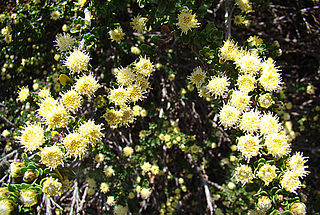
Chives, scientific name Allium schoenoprasum, is a species of flowering plant in the family Amaryllidaceae that produces edible leaves and flowers. Their close relatives include the common onions, garlic, shallot, leek, scallion, and Chinese onion.

Clematis is a genus of about 300 species within the buttercup family, Ranunculaceae. Their garden hybrids have been popular among gardeners, beginning with Clematis × jackmanii, a garden standby since 1862; more hybrid cultivars are being produced constantly. They are mainly of Chinese and Japanese origin. Most species are known as clematis in English, while some are also known as traveller's joy, a name invented for the sole British native, C. vitalba, by the herbalist John Gerard; virgin's bower for C. terniflora, C. virginiana, and C. viticella; old man's beard, applied to several with prominent seedheads; leather flower for those with fleshy petals; or vase vine for the North American Clematis viorna.

Acorus calamus is a species of flowering plant with psychoactive chemicals. It is a tall wetland monocot of the family Acoraceae, in the genus Acorus. Although used in traditional medicine over centuries to treat digestive disorders and pain, there is no clinical evidence for its safety or efficacy – and ingested calamus may be toxic – leading to its commercial ban in the United States.

Heuchera is a genus of largely evergreen perennial plants in the family Saxifragaceae, all native to North America. Common names include alumroot and coral bells.

Clematis napaulensis, the Nepal clematis, is a species of flowering plant in the buttercup family Ranunculaceae. It is native to China and the Indian subcontinent, including Nepal, whence the specific epithet napaulensis.

Clematis orientalis is a deciduous vine or scrambling shrub in the buttercup family Ranunculaceae, that originates from Asia and Central Europe. It was brought to the United States as an ornamental plant but escaped cultivation leading to its classification as a noxious weed in some states. Common names for C. orientalis include Chinese clematis, Oriental virginsbower, orange peel, and orange peel clematis.

Clethra barbinervis, the Japanese clethra, is a species of flowering plant in the family Clethraceae. It is native to eastern Asia, where it is found in southern China, Korea, and Japan. Its natural habitat is in open mountain forests. It is a common species in Japan, and is often found in disturbed secondary forests.

Camellia cuspidata, also known by the common name cuspidate camellia, is a species in the genus Camellia, in the family Theaceae. It is native to China, specifically the west. It occurs in the provinces of Anhui, Fujian, Guangdong, Guangxi, Guizhou, Hubei, Hunan, Jiangxi, Shaanxi, Sichuan, Yunnan, Zhejiang.

Pachysandra axillaris is a species of plant in the family Buxaceae. In its native China, it is known as 板凳果.

Disporum megalanthum is a deciduous rhizomatous perennial plant in the family Colchicaceae.

Clematis heracleifolia, the tube clematis, is a species of flowering plant in the buttercup family Ranunculaceae, native to central and northern China. Unlike most other members of the genus Clematis, it has a scrambling rather than a climbing habit.

Illicium henryi, also known by the common names Henry anise tree and Chinese anise tree is a species in the genus Illicium in the family Schisandraceae.

Distylium myricoides is a species in the genus Distylium in the family Hamamelidaceae. It is native to southern China.

Baccharis patagonica is a species in the genus Baccharis in the family Asteraceae. It is native to southern Argentina and central and southern Chile, including the Juan Fernández Islands.

Osmanthus armatus, also known by the common name devil wood or Chinese vernacular name 红柄木犀 is a species in the genus Osmanthus in the family Oleaceae. It is native to China, specifically the west or central and southeast.

Stachyurus salicifolius, also known by the Chinese vernacular name 柳叶旌节花, is a species in the genus Stachyurus in the family Stachyuraceae. It is native to China, specifically Chongqing, Sichuan, and northeast Yunnan.

Haplopappus glutinosus, known also by the common name sticky haplopappus is a species of plant in the genus Haplopappus in the family Asteraceae. It is native to Chile and Argentina.

Phillyrea angustifolia, the narrow-leaved mock privet, is a species of flowering plant in the olive family Oleaceae, native to the western and central Mediterranean, including Albania, Algeria, Balearic Islands, Corsica, France, Italy, Morocco, Portugal, Sardinia, Sicily, Spain, Tunisia, and Yugoslavia.

Polystichum makinoi is a species of fern in the genus Polystichum in the family Dryopteridaceae. It is native to Bhutan, China, India, Japan, Nepal, Tibet, North Korea, South Korea, and Myanmar.

Sycopsis is a genus of plants in the family Hamamelidaceae native to southern central China and Taiwan.




















